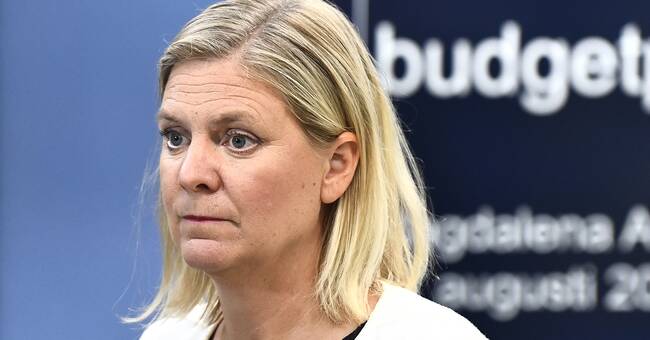The budget that is now being negotiated between the January parties is probably the most expansive budget a Swedish government has presented. Not during the crisis of the 1990s, not during the financial crisis, has an individual budget contained such large investments as the budget presented in the middle of next month.
The low interest rates mean that the Riksbank cannot contribute to stimulating the economy through reduced interest rates. Instead, the entire task falls on the government this time.
Preceded by intensive negotiationsIntensive budget negotiations have been going on all week between the January parties. It is not least about each party wanting to try to push through precisely their heart issues. It is also about the ideological differences that exist in the view of economic policy between several January parties.
The Social Democrats have constantly talked about the need for public investment and public consumption, such as earlier infrastructure projects, labor market policy measures and more money for municipalities and regions. The Social Democrats also want a permanent increase in the unemployment insurance fund, which took place during the corona crisis. All this is traditional social democratic politics.
Disparate heart issuesHowever, the Center Party and the Liberals have a different approach. They are skeptical about permanently raising the ceiling in the unemployment insurance fund and instead want to see more tax cuts, something that was rejected by Prime Minister Stefan Löfven in Sunday's summer speech.
C and L have presented a number of proposals for tax cuts, both for private individuals and companies. These include reduced income tax, reduced corporate tax and reduced employer contributions.
In addition, the Green Party in particular, but also the Center Party, are pushing for extensive climate initiatives, such as tax deductions for those who install solar cells or charging posts.
But despite the fact that Minister of Finance Magdalena Andersson has today presented something that can be described as an expected total for the entire package of measures, it is still unclear what concrete measures the four parties can actually agree on. It will also be interesting to see the total balance between tax cuts and expenditure increases when the budget is presented.
Central government debt will increase sharplyAt the same time, the recent high-profile acts of violence mean that the debate on serious crime has resumed. It places new demands on the government and its support parties to make continued investments in the judiciary.
Another controversial issue is the defense, where the January parties must agree on appropriations for the Armed Forces. Not very easy considering that the defense negotiations failed earlier this summer and that the Center Party and the Liberals have joined the Moderates 'and Christian Democrats' line with demands for more money for the defense.
Magdalena Andersson calls this year's budget historic. It's true. But the scope of the package of measures that will soon be presented is on borrowed money. This means that central government debt will increase sharply.
Sweden is in a deep recession and the deficit in public finances is expected to land at around SEK 300 billion this year. The hope is that the government, when times get better, if some can pay off the debts to try to get a budget in balance again.
How this is to be done, however, no one talks about today. There is also great uncertainty about the future. The global effects of the corona crisis are yet to be seen and new widespread virus outbreaks can quickly overturn all forecasts and calculations.

